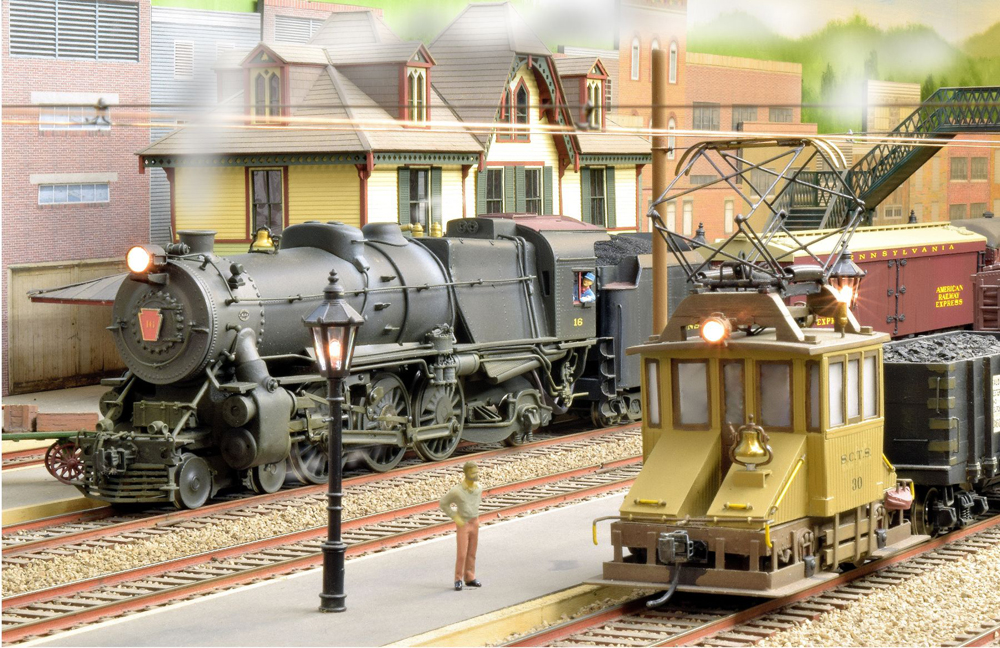
Tom Piccirillo started building scale models at age 12 after discovering a copy of the April 1964 issue of Model Railroader magazine at a local corner store. After receiving his degree in mechanical engineering in 1974, he pursued a management career in well-known industries, such as Burroughs Corp. and Ohaus Scale, and holds patents on […]
Read More…
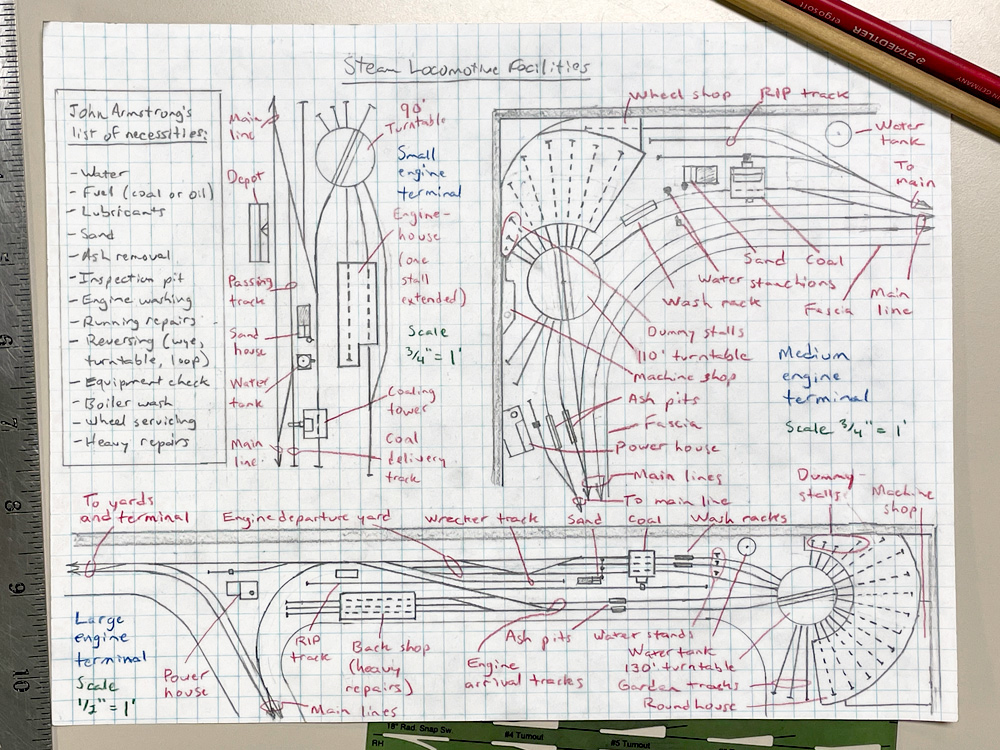
If you run steam locomotives on your model railroad, you need a steam engine terminal. Even if you don’t have room to model one, your model locomotives must get serviced somewhere off layout. But there are a lot of good reasons to model a steam engine terminal. First of all, and most important to some, […]
Read More…
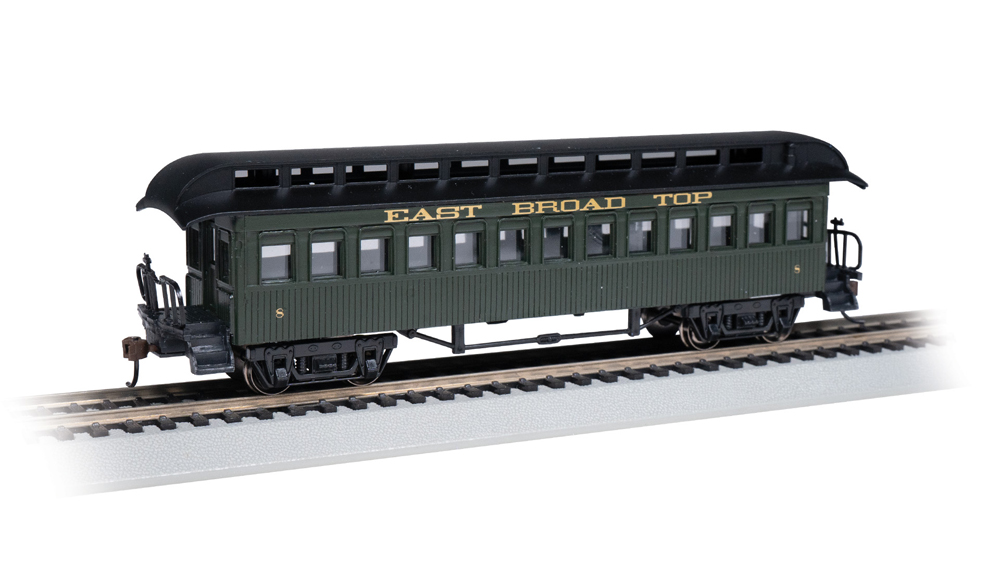
What is the largest radius curve on your layout? If you said anything less than 24”, you won’t be running 85-foot passenger cars any time soon. Even then, a 24” curve is extremely tight for those cars to navigate. Fear not, I have the solution for your long passenger car dilemma: short steam era passenger […]
Read More…
Signaling has entered a golden age in the hobby. More options exist now than have ever existed before for modelers to add signals to their railroads. Resources and online groups allow access to information and photographs at an unprecedented level. Possibilities cover the full range of options from a single stand-alone manual signal to a […]
Read More…
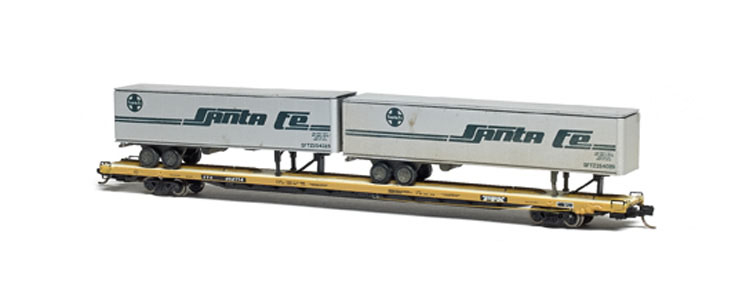
How to keep N scale piggybacks on track: My N scale Tehachapi Pass layout is set in 1985. Intermodal railroading was well established, but on nothing like the scale we see today. Most intermodal traffic in the pass was TOFC (trailer-on-flatcar), more commonly called “pigs,” short for piggybacks. For my money there’s nothing much less […]
Read More…
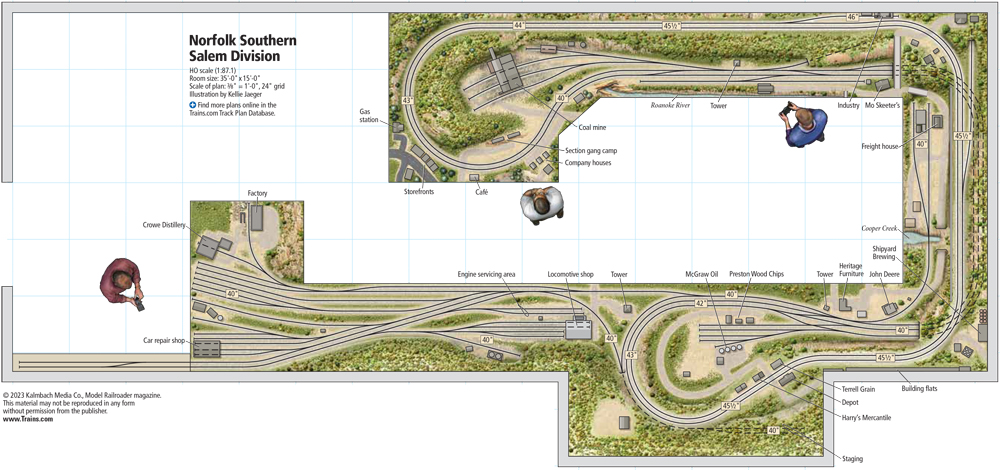
Facts & features Name: Norfolk Southern Salem DivisionScale: HO (1:87.1)Size: 15 x 34 feetPrototype: Norfolk Southern Locale: Salem, Va.Era: summer 1991Style: walkaroundMainline run: 80 feetMinimum radius: 22″ (branch), 25″ (main)Minimum turnout: No. 6Maximum grade: 1.5%Benchwork: open gridHeight: 40″ to 46″Roadbed: corkTrack: Atlas code 83 flextrack with Peco and Shinohara turnoutsScenery: extruded-foam insulation board and Woodland […]
Read More…
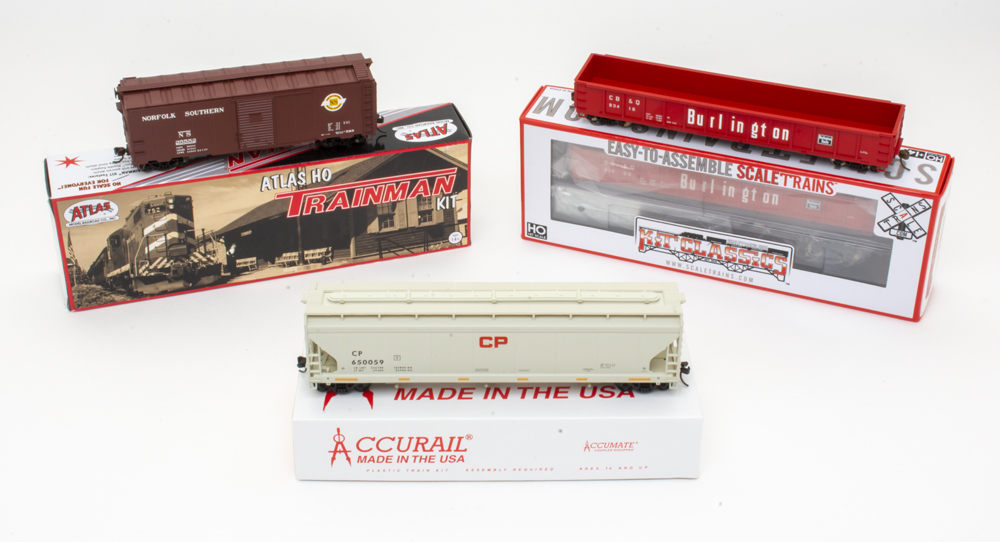
When I got into model railroading as a kid in the 1980s, factory-decorated HO scale freight car kits were the industry norm. I remember staring in awe at the shelves at McGiffin’s in Grand Forks, N.D., and Bader’s in Moorhead, Minn., two of the larger shops near my hometown, which were lined high and wide […]
Read More…
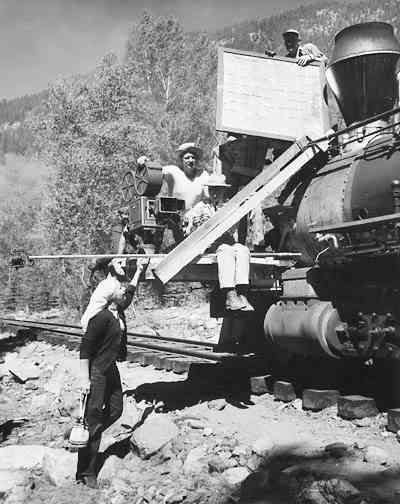
Trains in movies Trains in movies: Looking for a brief retreat that is fun, fairly inexpensive, and easily accessible all year round? Try exploring the world of trains from the comfort of your own home. Enjoy the good, the bad, and the ugly in railroad movies from the past. Robberies, explosions, romance, comedy, suspense … […]
Read More…
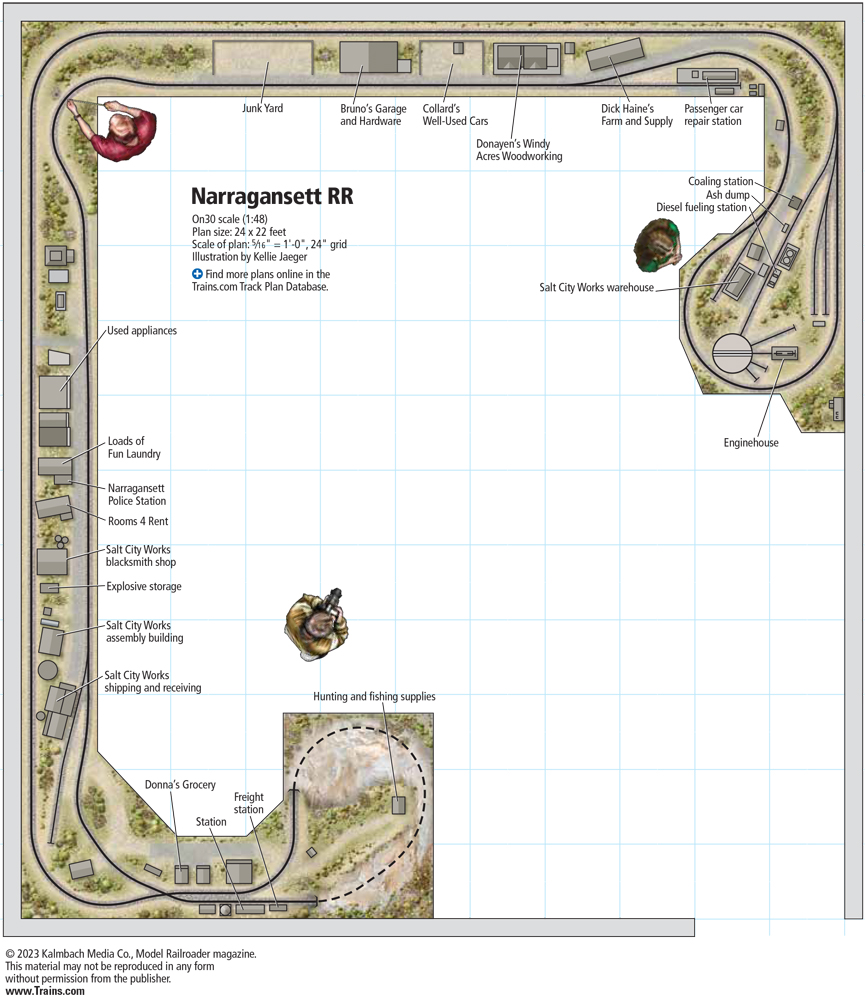
Facts & features Name: Narragansett RailroadScale: On30 (1:48)Size: 24 x 22 feet Prototype: freelancedLocale: Rhode IslandEra: 1929 to 1935Style: walk-inMainline run: 150 feetMinimum radius: 18″Minimum turnout: No. 4Maximum grade: noneBenchwork: open gridHeight: 57″Roadbed: noneTrack: flextrackBackdrop: hand-painted tempered hardboardControl: direct current Download a PDF of this trackplan! Buy the August 2023 issue of Model Railroader! […]
Read More…
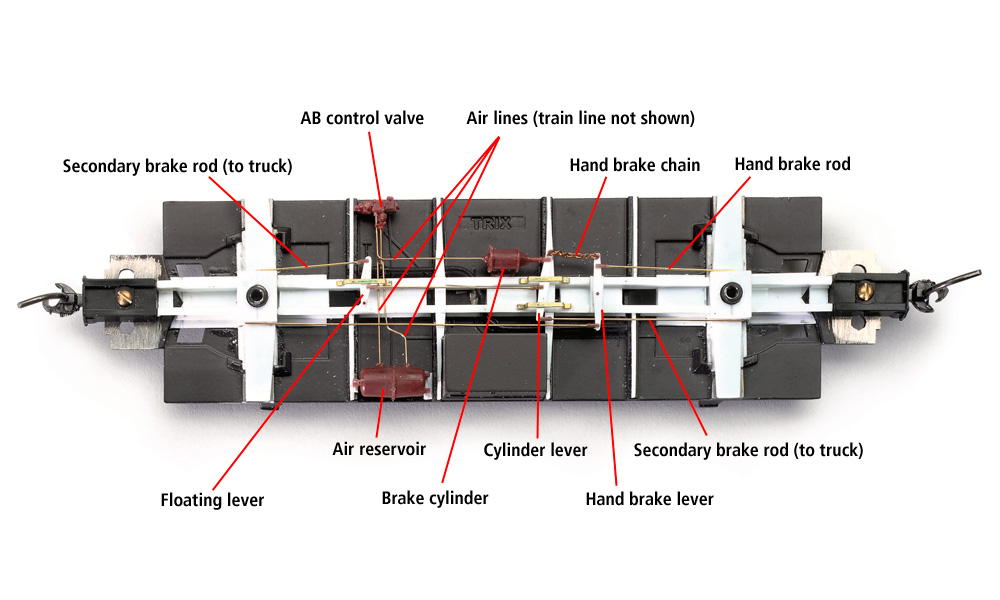
Q: I am researching transition era railcar brakes. Were there books written on the subject, and are they still available for purchase? – Ron Buddemeier A: The most complete and detailed reference for transition era railcar brakes is the one used by the railroads themselves – the Car Builder’s Cyclopedia of American Practice. This weighty […]
Read More…
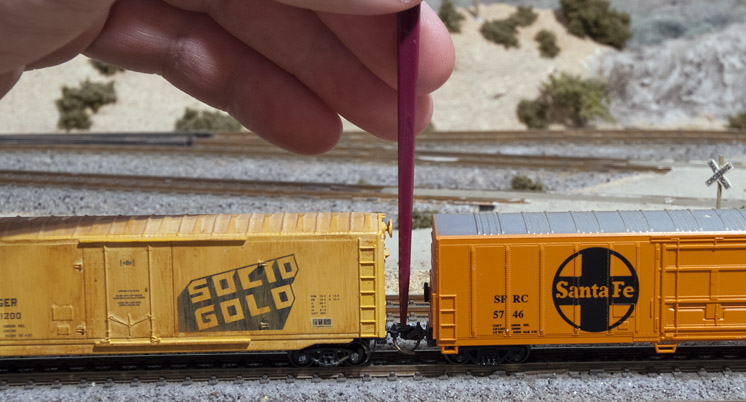
A handy N scale uncoupler: If you’re a model railroader, everywhere you go your antennae are out, scanning your environs for anything that might be useful to build with. And that leads me to swizzle sticks. I was having lunch with a tableful of in-laws at Maggiano’s Little Italy, a popular chain with a restaurant […]
Read More…
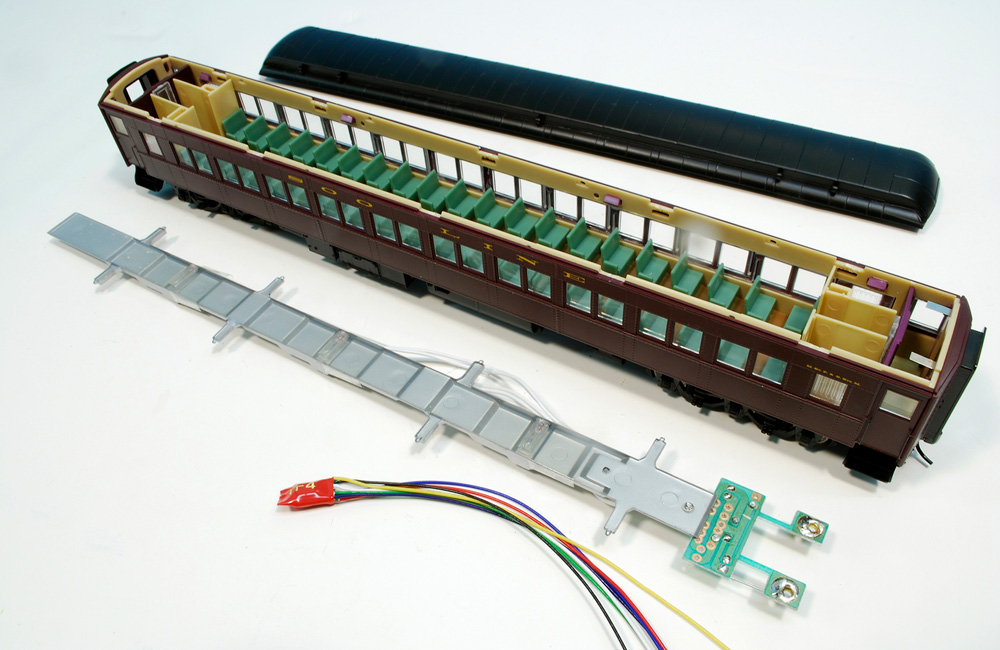
Q: I have some HO scale passenger cars that I would like to install LED lights into. I’m new to model railroading. I understand that I need decoders in each car, but after that, I’m lost. – Alex Laserson A: If you want to install passenger car interior lighting, you don’t absolutely have to use […]
Read More…











